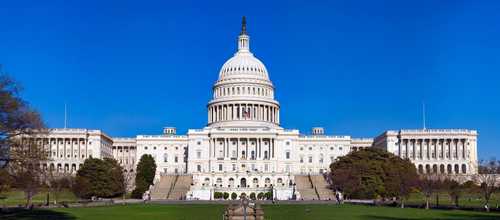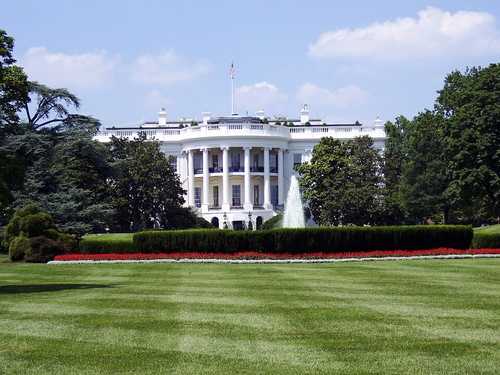The EB1A extraordinary ability green card is an employment-based green card category which allows a foreign national to self-petition for permanent residence without the need for a US employer. In this article, our employment-based immigration lawyer explains the requirements for obtaining an EB1A extraordinary-ability green card.
To qualify for an EB1A extraordinary ability green card, a foreign national must demonstrate that she is at the top of her area of discipline. The applicant must show that she has extraordinary ability in in one of the following areas of discipline:
- Sciences
- Arts
- Education
- Business
- Athletics
What are the EB1A requirements?
In order to qualify for the EB1A employment-based green card the applicants must:
- Provide evidence of extraordinary ability in the sciences, arts, education, business, or athletics
- Demonstrate documented achievements and be considered highly reputable in their area of discipline
- Continue to work in their area of discipline
- Provide evidence of national or international acclaim
How to prove plan to continue to work in an area of extraordinary ability?
In order to prove you will continue to work in your area of extraordinary ability you may submit letters from current or prospective employers, documented evidence of planned commitments, such as contracts, or an account outlining your prospective plan to continue working in your area of expertise in the United States.
What is sustained national or international acclaim?
An applicant for an EB1A extraordinary ability green card must provide evidence of sustained national or international acclaim. The applicant’s achievements must be recognized in her field. Sustained national or international claim can be proven with a one-time major achievement, such as a Nobel Peace Prize or an Academy Award. However, if an applicant has not received a major one-time award the applicant may submit evidence of at least three of the below listed 10 EB1A criteria to prove her national or international acclaim in her field.
If you are a considering applying for an extraordinary ability green card, I recommend you contact an experienced immigration lawyer. As part of our employment-based immigration USA services, we represent EB1A applicants from various fields. If you are searching for an “immigration lawyer near me” because you wish to apply for an EB1A extraordinary ability green card, please contact our employment-based immigration law firm office.
What documentation is needed for an EB-1A Green Card?
The applicant must show documented evidence of national or international acclaim in her field. Evidence of national or international acclaim include:
- Pulitzer and/or Nobel Peace Prize
- Academy, Golden Globe, or Emmy Award
- Olympic Gold Medal
- Other widely recognized award demonstrating extraordinary achievement
If an applicant does not hold a renowned award, the EB1A applicant must provide at least three of the following EB1A employment-based immigration criteria:
1.Evidence of receipt of a lesser nationally or internationally recognized prize
Applicant must provide adequate evidence that the lesser nationally or international prize holds prestige. The evidence submitted should contain a description of the prize or award, and the selection criteria for recipients and the number of people nominated for such award or prize. The applicant should also address if the award was earned as part of a team or individually.
2. Evidence of membership in prestigious associations in the field of endeavor which require outstanding achievement as evaluated by national or international experts in the field
Membership in the association should be limited to those most accomplished in the field. To prove the applicant’s extraordinary ability, membership should also be highly selective. The evidence provided to USCIS should contain the association’s criteria for membership and selection process as well as proof of the applicant’s membership in the association.
3. Published material about the applicant in professional or trade publications or other major media publications in the applicant’s field
The evidence submitted should include the title, date, and author of the publication. If the material appeared in a foreign language publication, it must be translated. Evidence that would meet this criteria include journal articles or major newspaper publications describing the applicant or her work. The publication must be widely recognized on a national or international level.
4. Evidence that the applicant judged the work of others in the same field
Evidence that may satisfy this criteria includes engaging in peer review of a grant, academic, scientific or research articles, or other important professional work.
5. Evidence of the applicant’s original scientific, scholarly, artistic, athletic, or business related contributions of major significance in the field
To satisfy this criterion, the EB-1A green card applicant must demonstrate to USCIS’s satisfaction that her achievements have significantly contributed to her field of endeavor. This criteria is usually proven by submitting several letters of support from other experts in the applicant’s field.
6. Evidence of applicant’s authorship of scholarly articles published in professional or trade publications or other major media
Publications that cloud qualify for this criteria include: academic journals, professional journals, mass media, or major trade journals. The evidence may include visual media. The applicant’s publication record should demonstrate her top-level expertise in her field of endeavor.
7. Evidence that applicant’s work has been displayed at artistic exhibitions or showcases
USCIS has not provided a list of exhibitions that would qualify for this criteria. Generally, the more recognized an exhibition or showcase is the more likely it is that it will meet this criterion.
8. Evidence that applicant acted in a leading or critical role for an organization with a distinguished reputation
To satisfy this criteria, the extraordinary ability green card applicant should submit evidence describing the position and showing its importance to the organization. Evidence of the organization’s prestigious reputation should also be submitted.
9. Evidence of applicant’s high salary or other high remuneration
The EB1A applicant should submit evidence that her salary or remuneration is high relative to others in her field.
10. Evidence of applicant’s commercial success in the performing arts.
The evidence can include box office receipts or other documents proving sales of the applicant’s artistic work.
What USCIS form is used for an EB1A extraordinary ability green card?
To submit the EB1A extraordinary ability green card petition, the applicant should complete Form I-140, Immigrant Petition for Alien Worker. The EB1A category allows the applicant to self-petition. This means that the applicant does not need a US employer to file an EB1A green card petition.
Upon approval of the I-140 petition, the applicant has to submit Form I-485, Application to Adjust Status to Permanent Resident, to become an EB1A extraordinary ability permanent resident.
Please contact our employment-based immigration lawyer if you require assistance in preparing Form I-140 or I-485, or if you seek information on how to prepare your extraordinary ability green card petition.
How long is the EB-1A green card process?
EB-1A green card applicants have the option of using USCIS’s premium processing service when filing Form I-140. USCIS’s premium processing service guarantees a 15 day processing time for an immigration application or petition. The cost of the premium processing service is $1,410. For more information about USCIS’s premium processing service please click here.
Upon approval of your I-140 petition, you may proceed with filing Form I-485 to adjust status to permanent resident if your priority date is current on the visa bulletin. Your priority date is the date your I-140 petition was filed with USCIS. Each month, the Department of State publishes a visa bulletin which states the final action dates for that month for each permanent residence category. If your priority date precedes (is an earlier date than) the final action date for the current month, then you may file your I-485 application to adjust status to permanent resident. To learn more about how to read the visa bulletin, please read our article on the topic.
Our employment-based immigration lawyer is here to help you with your immigration case
Do you seek assistance in preparing your EB1A extraordinary ability green card application? Are you wondering whether you may qualify for an EB1A green card? Are you searching for an “immigration lawyer near me”? As an experienced immigration law firm, Pandev Law has the knowledge and experience to guide you through your employment-based immigration case.
To learn more about our employment-based immigration USA services or to schedule a consultation with our employment-based immigration attorney, please complete our contact form, email [email protected], or call us at (212) 220-6652.
During your consultation, our employment-based immigration lawyer will provide an honest assessment of your case, and a recommendation about your next steps.
I offer confidential 30 minute & 1 hour consultations.
Schedule a consultation
Disclaimer: This blog article is provided by Pandev Law, LLC for general educational and informational purposes only. Although this article discusses general legal issues, it does not constitute legal advice nor does it establish an attorney-client relationship. No reader should act or refrain from acting on the basis of any information presented in this article, or elsewhere on this website, without seeking the advice of appropriate legal counsel, or other professional counsel, licensed in the relevant jurisdiction. Pandev Law, LLC expressly disclaims any and all liability with respect to any actions taken, or not taken, based on any content of this article or website. This blog article may constitute attorney advertising. Prior results do not guarantee a similar outcome.














